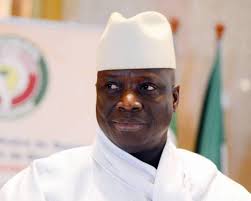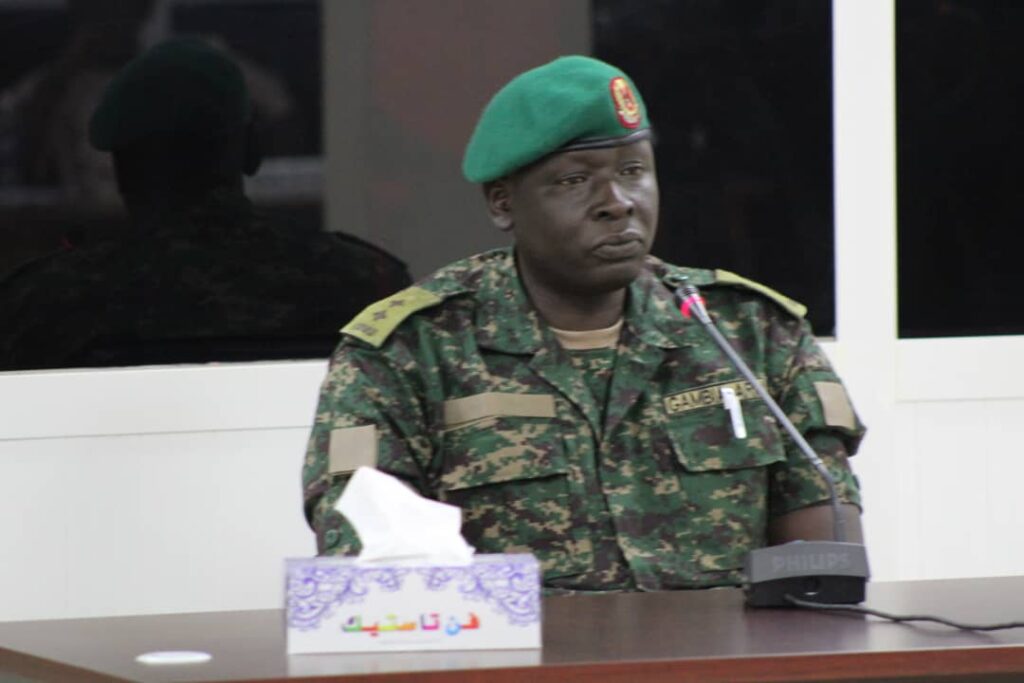
Malick Jatta, a serving soldier in The Gambia Armed Forces, has told the Truth, Reconciliation and Reparations Commission that the order to kill Deyda Hydara came directly from former president Yahya Jammeh.
The former member of Jammeh’s hit squad, The Jungulars, confessed his role in the extrajudicial killing of veteran journalist, Deyda Hydara, in December 2004.
He said the hit squad was commanded by the late Tumbul Tamba and comprised of several soldiers who posed as taxi drivers as they laid ambushed for the veteran journalist.

“Looking at the chain of command, Tumbul Tamba would not be mad to do some of the operations we were doing without getting orders from the commander in chief. So the orders were coming from the commander in chief directly,” Lt Jatta told the commission.
He said Tumbul Tamba told his unit comprising of Alieu Jeng, Sanna Manjang and himself (Malick Jatta) that they were going for a ‘magic-pen’.
Lt Jatta said they boarded a taxi which was picked up at a garage owned by former president Yahya Jammeh.

He said they drove along the Kairaba Avenue and went towards the Point Newspaper offices where they waited by the Traffic Light, adding that Tumbul was communicating with former President Yahya Jammeh.
Lt Jatta said there were order commercial taxis that soldiers filled for the operation. He said he saw Kawsu Camara alias Bombardier and Malafi Corr each driving a commercial taxi.
“Tumbul Tamba was coordinating with the other taxis,” he said.
He said one of the taxis used the Stadium route and the other used the Bakau highway while Tumbul used the Stadium highway. He gave a detailed narration of their route until they reached the Police Intervention Unit headquarters around Westfiled/Jimpex area. He said they passed the Police Mobile Unit heading towards the police garage.
“When we came near a vehicle, he (Tumbul) announced that the driver is the idiot and ordered for us to shoot.
“Myself, Jeng and Manjang shot, but Tumbul did not fire because he was the commander giving the orders,” he said.
He said they shoot without knowing the person they were shooting, adding that their thought was that person they would have been part of the ‘rebels they were to liquidate’.
He said after the killing, Tumbul drove them to Kanilai without uttering any word. He added that the following day, the members of the patrol team including himself were given money in dollars amounting to about D50,000.
He said after receiving the money, he came to the Kombo and got the news of the killing of Deyda Hydara.
Lt Jatta said he ‘panicked’ when he heard former president Yahya Jammeh condemning Deyda’s killing.
He said he realised that he was used in the extrajudicial killing without knowing the full details of the plot.
He said his commander, Major Khalifa Bajinka, was aware of the mission of the killing of Deyda Hydara.
“When I told him good morning Sir, he told me how was your mission? And I told him ‘accomplished sir’. He bowed his head without saying a word,” he said.
Lt Jatta disclosed that he was upset and confronted his commander, Kalifa Bajinka and asked for him to be removed from the patrol unit, or else he would remove himself.
He added that Major Bajinka was reluctant to remove him from the patrol unit.
He told the TRRC that he was used in the killing of a person (Deyda Hydara) who he never knew before.
He said he was part of the Libyan trained commandos and after their training with the Libyan instructors; they were all deployed to Kanilai where they spent 9 months. He said after their stay in Kanilai, he returned to the State Guard as a rifleman. He said he was later deployed to Kanilai to the patrol team under the late Tumbul Tamba.
“The role defined to us on arrival in Kanilai, was that our duty was to protect the borderline and the Gambian people from the rebels in Cassamance.”
He said later, their commanding officer, Tamba told them that they should not forget their oath of secrecy and allegiance.
“I realized that there was something,” he said.
He said in the army, “secrecy means whatever happens in the field stays in the field.
“My consent to join the army was not what I was put into.
“The command used to put us into situations where you as a subordinate will know what they are saying is not true (right).”
He while in Kanilai, they were instructed to stop the rebellion that was ‘cooking up’ in the country.
“This was a tactic that they used to make us believe that these people were rebels and they were going to carry out insurgency,” he said.
A soldier owes loyalty to the ideals of the nation, army, commander in chief and the unit you are serving, he said.
Reporting by Adama Makasuba










Recent Comments